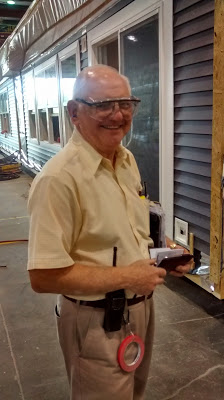There are a lot of new terms being bantered around in the workplace since COVID-19 such as Quiet Quitting and Quiet Working. But as a new term is about to make many offsite construction factories’ life a little better.
Retirement is a bigger contributor to the manufacturing labor shortage than quitting. A Manufacturing Institute survey found 82% of respondents who had left a manufacturing job in the previous six months retired due to age or health-related reasons.

This problem is only going to get worse as more Boomers hit retirement age. But what if you could keep some of those workers — and their institutional knowledge — at your company longer by allowing them to reduce their hours or work in a consultant role?
The results of a new survey from The Harris Poll commissioned by Express Employment Professionals shows that “semi-retirement” is becoming more popular — among companies as well as older workers. Almost one-third (30%) of hiring managers in the survey said their company offered this option, and 37% said the number of employees semi-retiring has increased over the past two years.
Quiet Retiring
If one of your management staff decides to retire and you don’t want to lose their knowledge or experience, you could rehire them as a part-time employee or as a consultant.

Retirees on the production, who are used to being busy and talking with peers at work, may find retirement quite boring and lonely. What do you think they might say if you were to offer them one or two days a week of work with fewer benefits?
A separate survey found that the majority of workers would take this option if it were offered. Of those interested in semi-retirement, 79% wanted a flexible work schedule, 66% would be willing to transition to a consulting role, and 59% said they’d consider reduced hours and benefits.
For employees, working longer may be particularly attractive so they don’t have to start tapping their retirement accounts in the current economy. For companies, it can act as a stopgap measure — keeping crucial roles filled and also keeping institutional knowledge in-house, at least until those workers can pass on what they know.
Gary Fleisher, Contributing Editor



